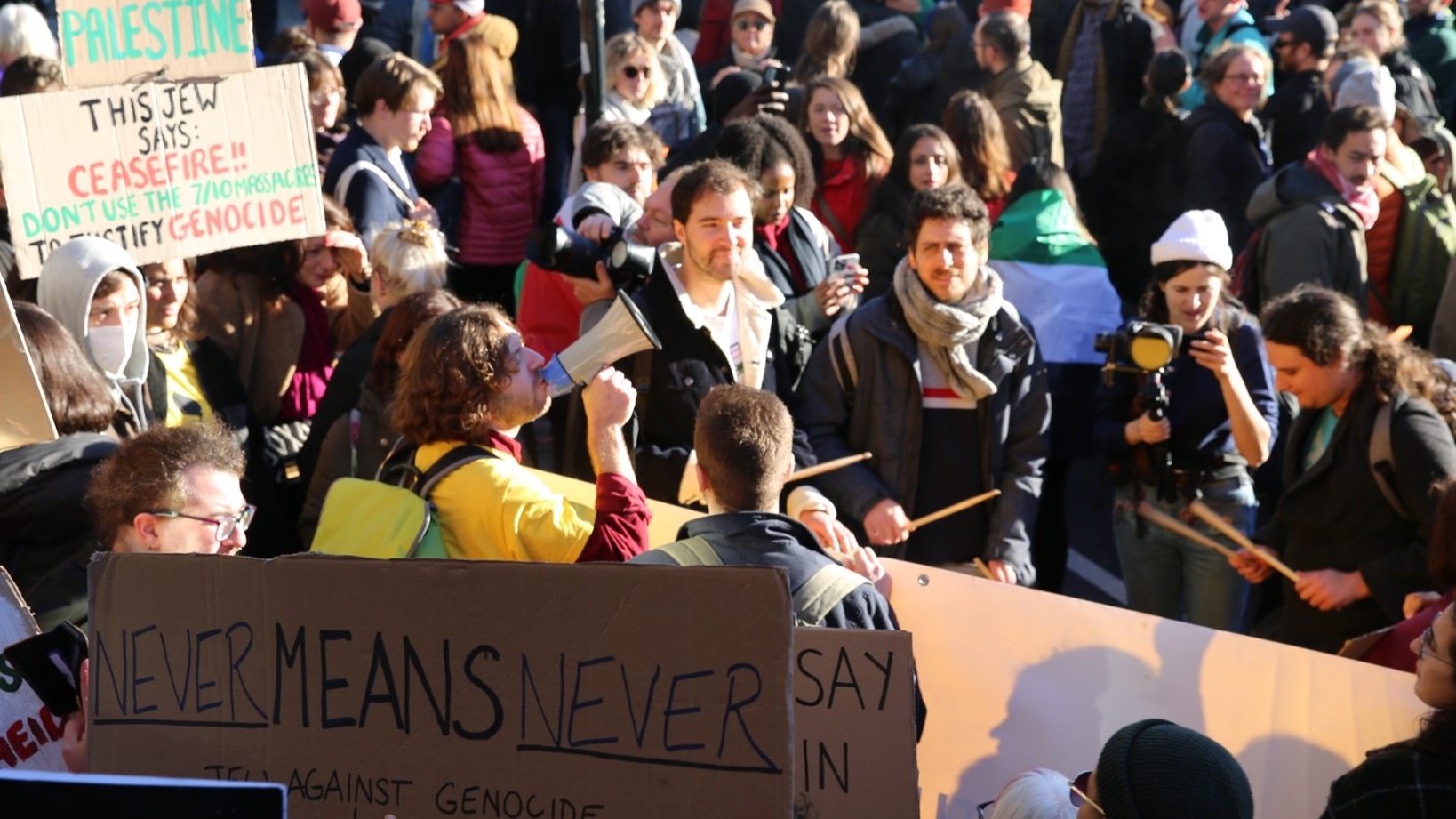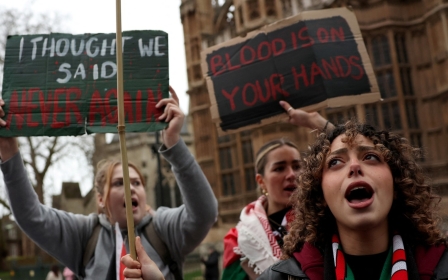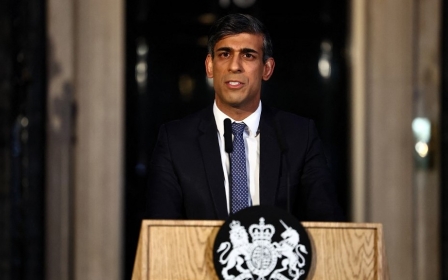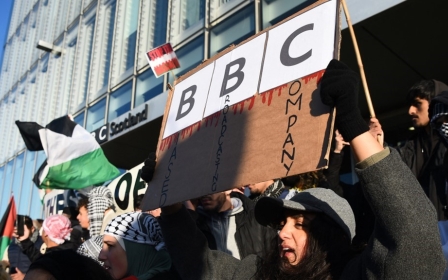UK: Jewish bloc marching for Gaza ceasefire rejects London 'no-go zone' claim

British Jews who are planning to attend a 10th national demonstration for Palestine on Saturday in London are hitting back at claims that the protests have made the city centre a “no-go zone” for Jews.
On Friday, Robin Simcox, the UK government’s Commissioner for Countering Extremism, claimed that the protests calling for a ceasefire in Gaza had made central London unsafe for Jews.
“We have not betrayed democracy if extremists are no longer able to operate television channels,” Simcox wrote in an opinion piece in The Daily Telegraph.
“And we will not have become an authoritarian state if London is no longer permitted to be turned into a no-go zone for Jews every weekend.”
Simcox echoed a growing call by pro-Israeli groups and the governing Conservative Party for the weekly protests for Palestine, which have attracted thousands of people from across the country, including British Jews, to be banned.
New MEE newsletter: Jerusalem Dispatch
Sign up to get the latest insights and analysis on Israel-Palestine, alongside Turkey Unpacked and other MEE newsletters
Barnaby Raine, who helps organise the Jewish bloc which has turned out at each of the national marches since the beginning of the Gaza war, criticised Simcox’s rhetoric and said it risked stoking further antisemitism.
"Israel treats Jews around the world as human shields by claiming that its brutal violence occurs in our name, which risks stoking antisemitism,” said Raine, who is an academic at Columbia University in New York City.
“Many thousands of Jews from New York to London refuse that blackmail, and we march proudly with our Muslim, Christian and atheist brothers and sisters because our Jewish values have nothing in common with colonial massacres."
Speaking to BBC radio on Friday, Mark Gardner from the Community Security Trust, which monitors antisemitism, suggested that Jews attending the protests did not represent the views of the majority of British Jews.
He described them as either ultra-orthodox Jews or revolutionary socialist Jews who are "using their Jewishness so that people get the impression this movement is not fundamentally antisemitic".
The Black Jewish Alliance, which is part of the Jewish bloc, criticised Gardner’s comments and said he was using “20th-century antisemitic tropes about communist Jews in order to paint an eclectic and diverse movement of concerned citizens as 'fundamentally antisemitic'. Guess we are back to Winston Churchill's good Zionist Jews vs the bad Bolshevik Jews," the Black Jewish Alliance commented on the social media platform X.
Na'amod, a Jewish group that calls for an end to the occupation of Palestine, also urged its supporters to ignore government calls to repress the marches and told people to join the Jewish bloc on Saturday.
“Ceasefire rallies are a joint struggle to push our government to save lives,” said Na'amod on X.
“They should be celebrated and protected. As the government tries to stop us from speaking out, we have to make our voices heard. Join the Jewish bloc this Saturday.”
Organisers of the demonstrations were asked by MPs about claims that some Jewish people felt unsafe in central London during pro-Palestine marches as part of an inquiry into the policing of protests by the Home Affairs Select Committee in December.
Ben Jamal, director of the Palestine Solidarity Campaign, told the committee that every demonstration had included a Jewish bloc of “hundreds and hundreds of people”, as well as speakers representing Jewish organisations.
He accepted that a narrative existed that Jewish people felt unsafe in London but said this was “problematic” because of a false characterisation of the marches as “thousands of people marching through the streets with antisemitic placards”.
“If you give an alternative narrative, which, I think is more truthful - that these are largely peaceful marches, populated by many families with young children and by people committed to peace, on anti-racist foundations, with many hundreds of Jewish people with them - perhaps people would be less fearful,” said Jamal.
Middle East Eye delivers independent and unrivalled coverage and analysis of the Middle East, North Africa and beyond. To learn more about republishing this content and the associated fees, please fill out this form. More about MEE can be found here.




